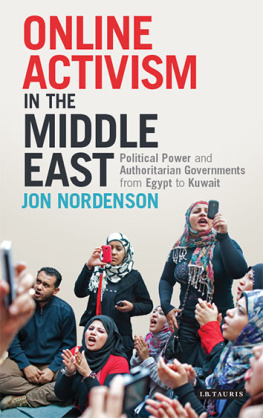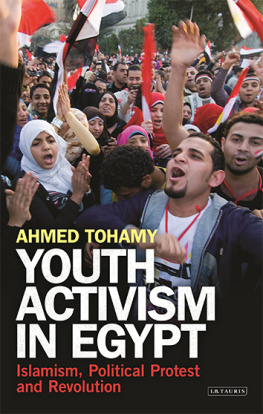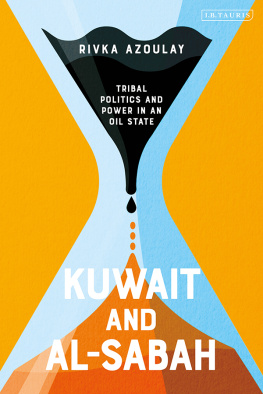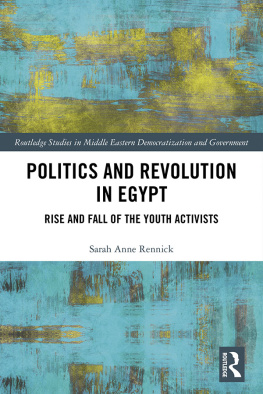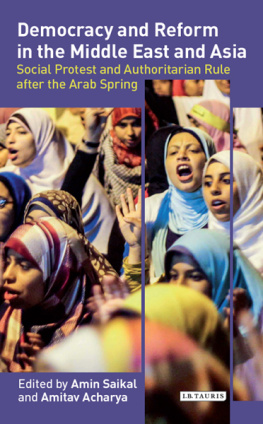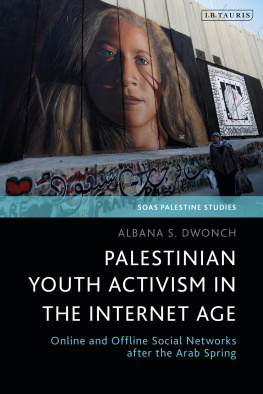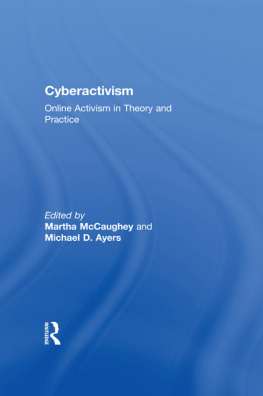Jon Nordenson is a researcher at the University of Oslo where he also completed his PhD at the Center for Islamic and Middle East Studies. His work has been published in The Middle East Journal, CyberOrient and Babylon: Nordic Journal for the Middle East and North Africa, for which he won the Babylon Award for best contribution by a young researcher.
Online Activism in the Middle East is an excellent book! The author has a compelling argument and uses data and a multi-track methodology to explain the role of online activism in a changing Middle East.
Deborah Wheeler, Associate Professor, Political Science Department, United States Naval Academy
This book addresses a timely and significant topic with depth, richness and nuance. It makes a much-needed contribution to the field of media studies through unpacking the complexity of the phenomenon of online activism, exploring its political and social manifestations, and comparing its implications across two Arab countries, one of which witnessed the Arab Spring uprisings and their aftermath, and one which did not.
Sahar Khamis, Associate Professor in the Department of Communication, University of Maryland
ONLINE
ACTIVISM IN
THE MIDDLE
EAST
Political Power and Authoritarian
Governments from Egypt to Kuwait
J ON N ORDENSON
Published in 2017 by
I.B.Tauris & Co. Ltd
London New York
www.ibtauris.com
Copyright 2017 Jon Nordenson
The right of Jon Nordenson to be identified as the author of this work has been asserted by the author in accordance with the Copyright, Designs and Patents Act 1988.
All rights reserved. Except for brief quotations in a review, this book, or any part thereof, may not be reproduced, stored in or introduced into a retrieval system, or transmitted, in any form or by any means, electronic, mechanical, photocopying, recording or otherwise, without the prior written permission of the publisher.
Every attempt has been made to gain permission for the use of the images in this book.
Any omissions will be rectified in future editions.
References to websites were correct at the time of writing.
Library of Modern Middle East Studies 191
ISBN: 978 1 78453 778 4
eISBN: 978 1 78672 126 6
ePDF: 978 1 78673 126 5
A full CIP record for this book is available from the British Library
A full CIP record is available from the Library of Congress
Library of Congress Catalog Card Number: available
LIST OF ILLUSTRATIONS
Figures
Activity and Followers, Twitter, Egypt
Activity and Followers, Facebook, Egypt
Twitter Usage, Egypt
Retweets vs. Own Tweets, Egypt
Activity and Followers, Twitter, Kuwait
Twitter Usage, Kuwait
Retweets vs. Own Tweets, Kuwait
Twitter Usage, Both Cases
Retweets vs. Own Tweets, Both Cases
Discussion Subcategories, Both Cases
Mobilisation Subcategories, Both Cases
Remaining Features, Both Cases
Tables
Categories Employed in Coding
Egyptian Platform Selection
Followers on Social Media, Egypt
Social Media Activity, Egypt
Kuwaiti Platform Selection
Followers on Social Media, Kuwait
Social Media Activity, Kuwait
A NOTE ON TRANSLITERATION AND TRANSLATION
This study investigates the work of a number of activist groups located in Egypt and Kuwait. As such, the issues of both transliteration and translation are central, as a number of names, slogans, quotes and the like originally given in Arabic must be incorporated into the text in a transparent, understandable and reader-friendly manner. The book is written in English and, as a consequence, all parts of text, such as hashtags or lengthy quotes, originally written in Arabic are translated into English. However, as any translation also entails interpretation, it is often highly relevant to provide the text in question in its original language. Yet, given that all widely used word processing programs recognise Arabic text, one might question the need and even relevance of transliteration, as it would remain incomprehensible to those who do not understand the language in question, in this case Arabic, regardless of the alphabet in which it is provided. For this reason, standalone quotes and names that do not form part of the body of text are not transliterated, but are given in the original Arabic and in English translation. All text that forms part of a URL or a hashtag is naturally given in Arabic, as this is a distinct piece of text containing links to particular information that can only be given in the original alphabet. Names of articles and blogposts given in notes are also given in Arabic.
However, it is also necessary to incorporate names, for instance of individuals, newspapers or activist groups, as well as some terms, within the body of the text. In these instances, the names and words are given in transliteration. When the names of the groups studied are provided for the first time, they are given in both Arabic script and in transliteration, as well as translated into English. The transliterations are provided in accordance with the transliteration guide provided by the International Journal of Middle East Studies (IJMES). This entails the following principles:
- Names of living individuals may be spelled according to their preferred English spelling. In practice, this means that the names of activists and politicians are spelled as these individuals do themselves, on their accounts on social media, their websites, etc. Most of the Egyptian activists referred to provide their own spelling, which is used accordingly. However, when I have found no preferred English spelling, which was the case for most of the Kuwaiti activists and politicians referred to, I have followed the IJMES guide.
- Personal names, the names of organisations, political parties, newspapers, books, and the like are spelled in accordance with the IJMES chart but without diacritics. Ayn and Hamza are preserved, with the exception of initial Hamza.
- Technical terms are written with diacritics and are italicised.
- The definite article is always written as al-, regardless of the following consonant.
- Arabic words that are incorporated into the English language, such as jihad, are spelled accordingly. This also includes place names.
- Names of historical persons are spelled according to the IJMES guide (IJMES no longer follows accepted English spelling).
- When colloquial words or phrases are transliterated, an explanatory note is provided. However, the letter jm is given as g when referring to Egyptian proper names or words throughout the text.
- The names of authors quoted are given as written in the source cited.
- Finally, some of the groups studied use their English name more frequently than their Arabic name. In these instances, the English name is employed, as well as a note stating the choice. In practice, this meant all the Egyptian groups, with the exception of Nazra.
ACKNOWLEDGEMENTS
It is a great pleasure to have the opportunity to thank all those who helped and supported me throughout the course of my work on this project, without whom the end result surely would not have been the same.

